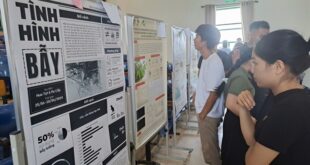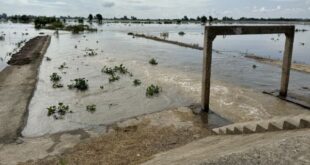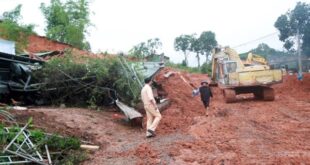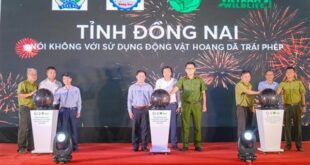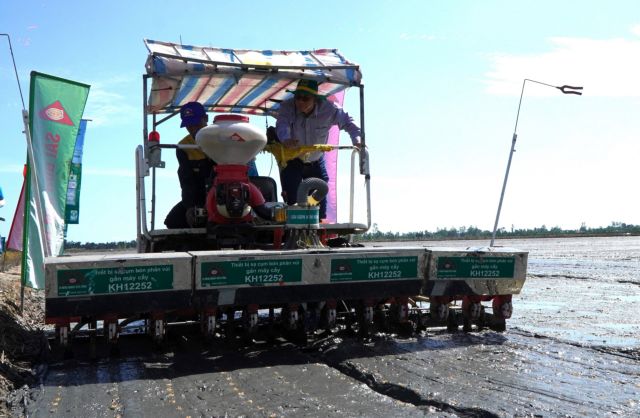 |
| Đồng Tháp Province last week launched a programme to develop one million hectares of high-quality, low-emission rice in the Mekong Delta Region. Đồng Tháp is among five localities in the Mekong Delta that have been chosen to develop models for the project. — VNA/VNS Photo Nhựt An |
HCM CITY — With climate change and rising sea levels posing significant threats, experts are advocating for a shift toward a circular economic model in the Mekong Delta, Việt Nam’s agricultural powerhouse.
The Institute for Circular Economy Development believes this approach holds immense potential for the region’s vast agricultural sector.
The Mekong Delta’s large-scale production offers a unique opportunity to minimise input resources, recycle waste and wastewater and find new uses for byproducts, said experts at the institute.
The environmental benefits are particularly compelling. Rice production alone generates a staggering 20 million tonnes of straw, four million tonnes of rice husks and two million tonnes of bran annually. According to institute experts, using these byproducts effectively is vital for building a sustainable rice industry.
According to the Ministry of Agriculture and Rural Development’s Department of Crop Production, up to 70 per cent of rice straw is currently burned or buried in fields, leading to air and soil pollution and the release of harmful greenhouse gases. The circular economy model offers a solution: collecting straw for mushroom cultivation, cattle feed, organic fertiliser production, bioplastics and even urban agriculture.
Livestock farming also presents a challenge. The Mekong Delta generates a hefty 2.78 million tonnes of animal waste annually, primarily from pig, poultry and cattle. While some of this waste is used for biogas generation, composting or directly used as fertiliser, significant opportunities remain for more sustainable practices.
The Mekong Delta contributes 31.37 per cent to the country’s GDP, with approximately 50 per cent of rice production, 95 per cent of rice exports, 65 per cent of aquaculture, 60 per cent of fish exports and nearly 70 per cent of various fruit production. — VNS
- Reduce Hair Loss with PURA D’OR Gold Label Shampoo
- Castor Oil Has Made a “Huge” Difference With Hair and Brow Growth
- Excessive hair loss in men: Signs of illness that cannot be subjective
- Dịch Vụ SEO Website ở Los Angeles, CA: đưa trang web doanh nghiệp bạn lên top Google
- Nails Salon Sierra Madre
 VnExpress News The News Gateway of Vietnam
VnExpress News The News Gateway of Vietnam
